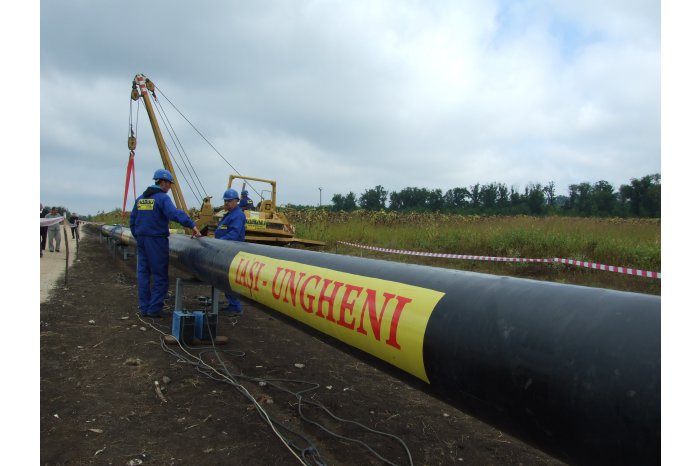Extending Iasi-Ungheni gas pipeline to Chisinau to ensure Moldova's energy independence
18:12 | 04.02.2016 Category: Economic
Chisinau, 4 February /MOLDPRES/ - The extension of the Iasi-Ungheni gas pipeline to Chisinau, where 50-60 per cent of the imported gas is consumed, will mean a decisive step in ensuring the energy independence of Moldova and will substantially diminish the dependence from Gazprom and Russia. These conclusions are contained in a survey worked out by the Expert-Grup Independent Analytical Centre and Expert-Forum (Romania), unveiled in Chisinau today.
In experts’ opinion, the project on extending is threatened, however, by political instability, slow march of reforms in the energy sector and the debts to the Gazprom giant.
The Moldovan authorities’ interest in the diversification of gas supply sources increased in 2010-2013, following the accession to the European Energy Community. Namely this favoured the inauguration of the Iasi-Ungheni gas pipeline in August 2014, as a result of a 26.5-million-euros-worth investment, of which 80 per cent was covered by the Romanian side and EU.
The volume exported through this pipeline via Romania was as little as one million cubic metres in 2015, or one per cent of the overall consumption of Moldova, although the pipeline’s real transportation capacity is 1.5 billion cubic metres of gas per year (a volume that might fully cover Moldova’s needs).
The extension is particularly necessary in the light of Moldova’s dependence from Gazprom, given that the debts of Moldova for the Russian gas accounted for 65 per cent of the country’s Gross Domestic Product (GDP) in 2014, according to the survey’s authors. The Russian giant conditions continuing the gas supply on the non-enforcement of the European legislation in the energy sector – a legislation that might facilitate the opening of the market to other providers.
According to Expert-Grup, the increase in the gas quantity and, respectively, ensuring the economic sustainability of this pipeline might occur only through the extension of this pipeline to Chisinau, where most gas imported in Moldova is consumed. EU could allocate 10 million euros for the extension, and the rest of 80 million euros is to be covered by loans from European financial institutions (European Bank for Reconstruction and Development, European Investment Bank).
The general conclusion of the feasibility study for the construction of the Ungheni-Chisinau gas pipeline, recently developed by EBRD, is that the project is feasible. The Bank’s experts said that the total cost of the project was estimated at about 83.7 million euros, without taking into account the compressor stations. After the feasibility study is translated into the official language of Moldova, public consultations will start, due to last 120 days, the Economics Ministry has earlier said.
The works on construction of the about 100-km-long Ungheni-Chisinau gas pipeline will start in 2016.
(Reporter V. Bercu, editor A. Raileanu)

